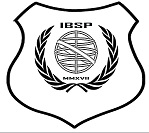O CONTROLE EXTERNO DA POLÍCIA MILITAR
estudo a partir da análise do Rio Grande do Norte
DOI:
https://doi.org/10.36776/ribsp.v1i2.35Keywords:
Controle da Polícia, Democratização da Polícia, Desmilitarização da polícia, Direito Militar, Processo PenalAbstract
The present study aims to analyze the control of police-military activity in Rio Grande do Norte. In this sense, an empirical study was carried out through the application of a questionnaire to the processes that process in the Military Audit of that State. By way of explanation, the questions that have been asked include the whole process (not limited to the jurisdictional question) of the studied phenomenon, through questions that include: i) chronological questions; ii) questions of juridicity (such as the confirmation of the change in capitulation in the various instances of control of police activity); iii) circumstances of the fact itself (such as the presence of witnesses - including the police themselves - and their subsequent hearing, or the configuration of the victim's picture); iv) behavior of the various institutions involved throughout the process (the administrative bodies of internal control, the parquet, the Judiciary); and v) verification of the profile of the accused (what their patents, and in which Battalion or Detachment serve / serve). In this way, it was possible to map the various instances of the institutional arrangement involving the control of the Military Police, both internally and externally. Therefore, the various moments involved in the control of police activity, from the investigation by the Internal Revenue Service or by the Military Police Battalions (internal control), to the performance of the Military Public Prosecutor's Office (external control) and to the judicialization of the demand, were analyzed. the proposal of the criminal action in the Military Justice, passing in some cases by the Police Ombudsman (which also integrates the external control of the police). In this context, various institutional, bureaucratic and non-bureaucratic nuances have been identified, which are due to the current institutional arrangement, and which have led to the creation of several selectivity filters that operate throughout the process (from the occurrence of military crime to the penalty imposed by the Military Audit). At the same time, the legislation and the extralegal norms that regulate the competences of investigating and prosecuting military crimes were analyzed; as well as the specialized literature, as well as other empirical researches, as well as theoretical texts addressing the issue of various perspectives and other authors who work with these phenomena in a high degree of abstraction. Along the paths that have been traced, therefore, it was sought to identify the reasons that hinder the process of accountability of criminal conduct practiced by Military Police.Downloads
Published
2018-10-06
How to Cite
Bulhões Nóbrega Dias, G. (2018). O CONTROLE EXTERNO DA POLÍCIA MILITAR: estudo a partir da análise do Rio Grande do Norte. Revista Do Instituto Brasileiro De Segurança Pública (RIBSP), 1(2), 94–111. https://doi.org/10.36776/ribsp.v1i2.35
Issue
Section
Artigos



